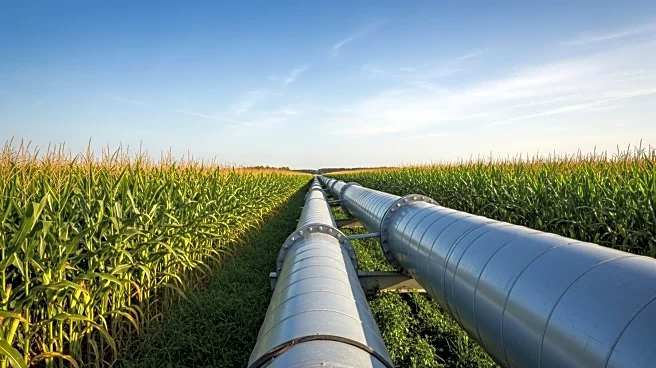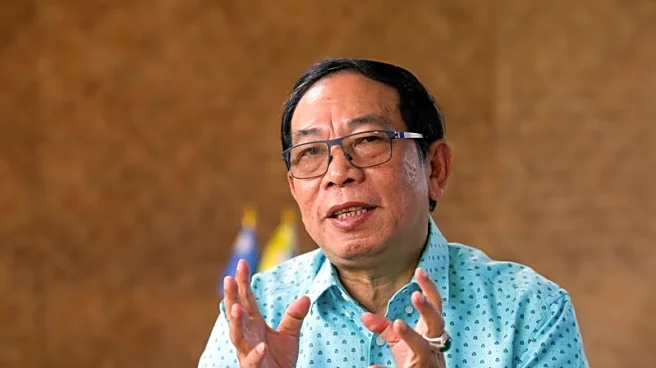What is the story about?
What's Happening?
A new carbon sequestration pipeline project connecting Colorado and Nebraska has become operational, raising concerns in Iowa about its impact on the state's ethanol production status. Iowa, currently the leading ethanol producer in the U.S., faces potential market challenges as the pipeline could open new markets for Nebraska, especially at a time when corn prices are low and production is high. Monte Shaw, Executive Director of the Iowa Renewable Fuels Association, emphasized the need to grow demand or reduce production to avoid economic repercussions in Iowa and the Midwest. Steve Kuiper from the Iowa Corn Growers Association noted that increased ethanol production leads to higher competition for corn, potentially benefiting farmers with better prices. However, some Iowa landowners oppose the pipeline, citing safety concerns and questioning its necessity, as some ethanol plants in Iowa already produce low carbon intensity ethanol without it.
Why It's Important?
The operational status of the Nebraska pipeline could shift the dynamics of ethanol production in the Midwest, potentially affecting Iowa's economy and its farmers. Iowa's position as the top ethanol producer is at risk, which could lead to economic challenges if demand does not increase. The pipeline could provide Nebraska with access to new markets, such as California and Canada, which have specific ethanol regulations. This development highlights the ongoing debate between economic growth and environmental safety, as well as the regulatory challenges faced by pipeline projects. The outcome could influence future infrastructure projects and energy policies in the region.
What's Next?
The legal battle over pipeline regulation continues, with Summit Carbon Solutions suing two Iowa counties over changes in their rules. The case has reached the U.S. Supreme Court, where attorneys from Shelby and Story counties have filed a petition. The court's decision could set a precedent for federal versus state authority in pipeline safety standards and land use. Meanwhile, Iowa farmers and ethanol producers must navigate the evolving market conditions and potential shifts in demand. Stakeholders will likely continue to advocate for policies that support local agriculture and sustainable energy production.
Beyond the Headlines
The pipeline project raises broader questions about the balance between economic development and environmental stewardship. It underscores the complexities of energy infrastructure projects, including the ethical considerations of land use and the rights of local communities. The debate also reflects the tension between federal and state regulatory powers, which could have long-term implications for similar projects across the country. As the U.S. transitions to more sustainable energy sources, these discussions will be crucial in shaping future policies and industry practices.

















